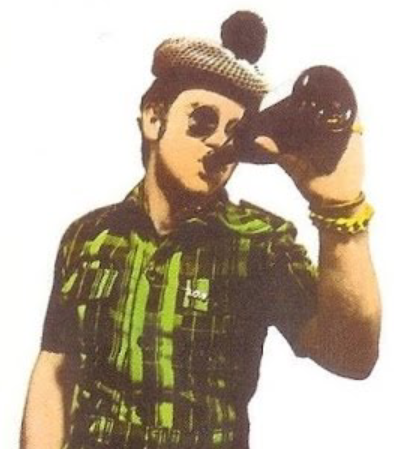I’ve been curious how many working researchers we’ve got in this community, and what you all do!
If you’re working in science (physical or social), engineering, etc in a research capacity, give a shout in the comments and let us know what you work on! Same goes for students and amateur scientists at any level. (And by amateur I mean those of you who are working on your own experiments but just not being paid for it / not working on a degree; I’m upset that “amateur” has a negative connotation, it shouldn’t.)
I’m currently a PhD candidate, working on transmission electron microscopy and electronic materials (mainly ferroelectrics). In the past I’ve been involved in research / product development in a few different industries, including medical devices, aerogels, and materials for RF devices.
It’s science-y enough but I’m definitely not considered a scientist so much as a technologist. I work as a MRI (Magnetic Resonance Imaging) Technologist. Previously a X-Ray Technologist.
My machine does all the science for me but it’s a pretty neat concept. Using magnetic gradients and RF pulses at hydrogen protons to acquire accurate digital imaging.
Happy to have you! The science behind MRI is fascinating, and the machines themselves are really cool. Have you ever seen a magnet quench? I don’t think they’re really supposed to happen during normal operation, but some of the videos I’ve seen have been rather dramatic.
It is pretty crazy people were able to figure that all out and we are able obtain crazy detailed pictures without radiation.
No I haven’t seen it! Hoping to see a controlled quench someday but also hoping to avoid needing to use it in any emergency situations; it’ll have to be a damn near life/death situation to hit that button. Very costly decision. I guess there’s also a dwindling supply of helium in the world so that could get interesting as time goes on.
Yeah, helium being a finite resource was something that really surprised me when I first learned about it! Better to keep it inside the MRI as much as possible for sure
helium recovery and recycling has come a long way, and the costs of helium are now justifying the extra expense of the hardware, so I think that problem should abate somewhat in the coming years.
I’m a PhD candidate too - my contract is finished now, but I am still writing my thesis. So I am currently at the awkward intersection of finishing a thesis and looking for a job.
My PhD focus is in applying time-resolved spectroscopic techniques to study the excited state dynamics of molecules. Basically, these are experiments in which a pulsed laser is used to excite the sample and a second probe light is used to measure a change in the absorption in response to the light. By measuring these changes in the absorption as a function of time, and applying quantum chemical methods to calculate the spectra of potential intermediates, one can sort of recreate a movie of what the molecule is doing after it absorbs light with a time resolution of femto to picoseconds. The materials that I study are organic dyes that are useful for microscopy, as well as molecules that respond to EUV light for applications in photonanolithography (for making the very small transistors in computer chips).
I am also an “amateur” scientist when it comes to biology, as many of my hobbies are nature-based and it’s not like I can turn off the science bug when it comes to hobbies.
Well that’s fascinating! The technique sounds a little bit like a cross between Raman and EXAFS/XANES? (Probably just because those are two techniques I happen to be familiar with though.)
I’m an associate professor in computer science, currently working on stochastic algorithms (like genetic algorithms).
Until now, I’ve been working on quite abstract optimization problems, but I’d like to switch to more useful applications, like social inequalities or climate change.
I get that. Working on a more abstract problem should, in theory, help solve more practical problems down the line, but sometimes it just feels less satisfying that working on something where you can see the real world application and (hopefully) results. I’m definitely looking to do something practical with my experience once I’m finished with my PhD.
I’m a research professor of neurology, and my research focuses on developing novel cognitive assessments for measuring early-stage Alzheimer’s disease and other types of dementia.
That’s a field where it seems (to an outsider) like a lot has been happening recently! Glad to have you here!
You’d be correct! The new anti-amyloid drugs are very exciting, and it makes my work on preclinical Alzheimer’s even more fulfilling as it can have a real impact on getting people tested and treated as early as possible.
I’m working on my Astrophysics PhD. I study “galactic cannibalism” aka how galaxies grow and change by eating smaller galaxies. My big focus is on teaching and outreach though rather than research.
Cool! Is this the kind of thing that’s going to happen between Andromeda and the Milky-way, or is that fundamentally different because they’re more similar in size?
Yep, MW and Andromeda merger will be a “major merger” that will have huge effects on both galaxies. The ones I work with are small (“dwarf”) galaxies that have a much smaller effect on the big one that eats them.
PhD in Geology. Now am a research scientist working in more general materials science/chemistry/gas adsorption. My thesis was on lunar petrology where I studied Apollo 16 samples. My current research is much less exciting. Haven’t touched a rock in ages and my geologist heart hurts from it haha
Dang we gotta get you some cool rocks!
(I’ve always kinda wanted to thinly section some rocks with nice big grains and put them in the TEM; so many natural minerals have really interesting crystal structures!)
I’m a PhD candidate in inorganic and biochemistry! Loving the chem representation here, and loving OP’s username.
I’m a Data Scientist (physics PhD) for a large enterprise company. I’ve been in this field for the last decade and I’m kinda bored with it. I’m not exactly sure what to do next though…
Mmm yeah, I can imagine things might get a bit stale after a decade working on similar things. What was your physics PhD in, something you’d be interested in pursuing again maybe?
My thesis covered optoelectronic measurements of nanomaterials for novel photovoltaics. Even as a kid, I wanted some sort of career researching alternative energy, but those jobs sadly don’t exist.
Graduate student in ecology, just finishing up.
Congrats on (being close to) making it through!
what are you hoping to do afterward? I’ve always found ecology interesting
I am a welding Engineer working in a mixed role of failure analysis and research. Most of my projects are sustainability based.
Very cool! From the small bit I learned about welding in my classes it really seems like a topic with a lot of depth and nuance to it (that maybe sometimes goes unappreciated). Happy to have you 'round!
Honestly it’s one of my favorite things about welding engineering- it’s materials, physics, electrical, mechanical, manufacturing, automation, chemical… you get a bit of a lot of disciplines!
I work at a company that makes large and small rocket engines (e.g., the ones on SLS/Artemis, and solids for a number of defense programs), and various electrical power systems (e.g., for the ISS and some of the Mars rovers). I manage the space software engineering organization.
Look at this rocket surgeon, over here. SMDH.
I’m just a software/systems guy; I work with a lot of genuine rocket scientists - they’re fun to work with.
Development engineer working with autonomous vehicles. Worst part of it is having to interact with Tesla bros who think that they have self-driving figured out despite what experts in the field tell them.
I’ve got a PhD in nonlinear vibrations. I’ve left academia for the space industry though.
That definitely sounds like something that could be useful in a lot of different ways - including in the space industry!
Yeah well most industries pray that everything stays all good and linear, but sadly it isn’t always the case haha. The next level is to design a structure with nonlinearities on purpose.
working in a cultivated meat startup, msc in biotechnology, but now disillusioned and wanting to do something academic/more down to earth and helpful
If it’s not too personal, may I ask what lead to your disillusionment with the field? “Lab grown” meat (assuming that’s what you mean by cultivated) has seemed like a promising idea to me for a while, in terms of environmental impact and the ethical consideration of animals.
That doesn’t feel helpful to you?
no, the technology is underdeveloped, and very resource intensive. I don’t think it is a viable alternative at all. Better to just eat what grows from the ground than spend so much time, money, energy forcing cells that don’t want to grow in such an artificial environment. I’ve also started to notice how it seems to be quite tied to EA and longtermism crowd, who are investing in it a lot.
True. It could still have benefits from a vegetarian or conservation perspective, though.
Have you thought about trying to get into genetically modified plant crops, then?
I did consider it yes, but those companies are evil too, they make a farmer reliant on a super crop that can’t produce its own seeds, and then make a mint by selling them seeds every year.
I’m a PhD in chemical engineering and work in a testing laboratory for electrical engineering insulating materials. My dissertation was using predictive modelling (some data mining and machine learning, some more classical statistical methods) to estimate material properties from spectral data. I’m trying to combine a full-day engineering job with writing more journal articles in my spare time. Currently not going well but at least I’m not lacking for data!
Haha that sounds like it must be keeping you real busy! I’m currently spending most of my days writing and it takes up so much time on its own I can’t imagine trying to combine that with a full time job. More power to you!
I see from elsewhere in the thread that you did chemical engineering as an undergrad so – hi, colleague! :) My PhD took a very long time to finish and I would never ever recommend combining industry with academia. I’m a masochist I guess.
Have you done any work with liquid ferroelectrics (e.g. https://doi.org/10.1016/S0304-8853(99)00066-9)? Those were all the rage in my field because they were expected to enhance convection cooling and the dielectric properties of liquid-cooled equipment significantly. Then they just… fizzled out.
I’ve not! My work has been exclusively solid-state materials so far – they’re just much easier to observe in the TEM. It’s not impossible to do TEM on liquids / colloids, but it’s a pretty specialized technique that I’m only passingly aware of as a thing that’s possible. Seems like a pretty cool area though, I wonder why it fizzled out.









